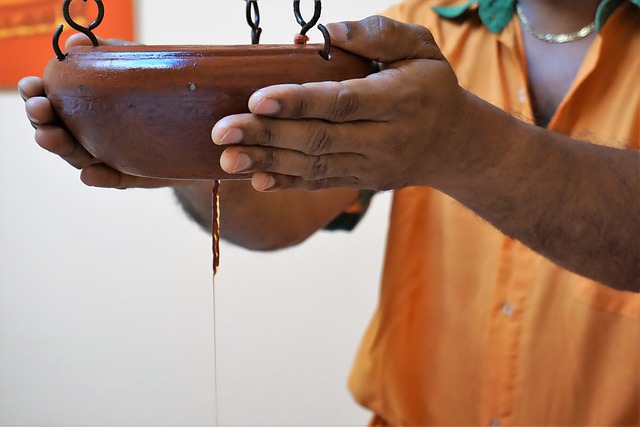-By: Bhavisha Changrani
Psoriasis is a chronic autoimmune skin condition that leads to the rapid proliferation of skin cells, resulting in the formation of scaly patches and red areas on the skin. This condition can significantly affect a person’s quality of life, causing physical discomfort and emotional distress. In this article, we will delve into the nature of psoriasis, its causes, symptoms, and treatment options, offering a thorough understanding of this condition.
What is Psoriasis?
Psoriasis is characterized by the accelerated growth cycle of skin cells, which results in thick, inflamed patches covered with silvery-white scales. While it can appear anywhere on the body, it commonly affects the elbows, knees, scalp, and lower back. Psoriasis is typically a chronic condition, featuring cycles of flare-ups and periods of remission.
Types of Psoriasis
- Plaque Psoriasis: The most prevalent type, presenting as raised, red patches with silvery scales.
- Guttate Psoriasis: Appears as small, drop-shaped spots and often follows a bacterial infection.
- Inverse Psoriasis: Characterized by smooth, red patches that occur in skin folds, such as underarms or groin.
- Pustular Psoriasis: Features white pustules surrounded by red skin and can be localized or widespread.
- Erythrodermic Psoriasis: A severe form that can cover large areas of the body, leading to significant discomfort.
Causes and Triggers
While the exact cause of psoriasis remains unclear, it is believed to stem from an immune system malfunction combined with genetic predisposition. Certain factors can trigger or exacerbate the condition, including:
- Stress: Emotional stress is a common trigger for flare-ups.
- Infections: Such as streptococcal throat infections can lead to sudden outbreaks.
- Skin Injuries: Cuts, scrapes, or sunburn can provoke symptoms.
- Medications: Certain drugs, like lithium or beta-blockers, may worsen psoriasis.
- Weather: Cold and dry conditions can lead to increased symptoms.
Symptoms
Psoriasis symptoms can vary in severity and may include:
- Red patches of skin with thick, silvery scales.
- Dry, cracked skin that may bleed.
- Itching, burning, or soreness.
- Pitted or thickened nails.
- Swollen and painful joints, which may indicate psoriatic arthritis.
Diagnosis
Diagnosis typically involves a physical examination by a healthcare professional who assesses the skin, nails, and scalp. In some cases, a skin biopsy may be performed to rule out other skin conditions.
Treatment Options
While there is no cure for psoriasis, various treatment approaches can help manage symptoms effectively. Treatment plans often depend on the severity and extent of the condition and may include:
Topical Treatments
- Corticosteroids: These help reduce inflammation and slow skin cell turnover.
- Vitamin D Analogs: Such as calcipotriene, help regulate skin cell growth.
- Retinoids: Promote cell turnover and reduce inflammation.
- Calcineurin Inhibitors: Decrease inflammation and plaque formation.
Phototherapy
This treatment involves exposing the skin to ultraviolet (UV) light under medical supervision. It can help reduce symptoms and is often recommended for moderate to severe cases.
Systemic Treatments
For more severe psoriasis, systemic medications may be necessary, including:
- Methotrexate: Reduces the immune response and slows cell growth.
- Biologics: Target specific parts of the immune system and are used for moderate to severe cases.
- Oral Medications: Such as acitretin and cyclosporine, may also be prescribed.
Lifestyle and Home Remedies
In addition to medical treatments, certain lifestyle changes can help manage psoriasis:
- Moisturizing: Regularly applying moisturizers can help alleviate dryness and itching.
- Avoiding Triggers: Identifying and steering clear of personal triggers can reduce flare-ups.
- Stress Management: Techniques like yoga, meditation, and regular exercise can help manage stress levels.
- Healthy Diet: A balanced diet rich in fruits, vegetables, and anti-inflammatory foods may support skin health.
Living with Psoriasis
Living with psoriasis can be challenging, both physically and emotionally. Seeking support from healthcare providers, support groups, or mental health professionals can be beneficial. Understanding the condition empowers individuals to make informed choices about their treatment and engage with others facing similar experiences.
Conclusion
Psoriasis is a multifaceted condition that affects millions of individuals worldwide. While it can pose significant challenges, knowledge about the disease and its management options can lead to improved outcomes. If you suspect you have psoriasis or are experiencing related symptoms, consult a healthcare professional for a thorough evaluation and tailored treatment plan. With the right approach, many individuals with psoriasis can lead fulfilling lives.











